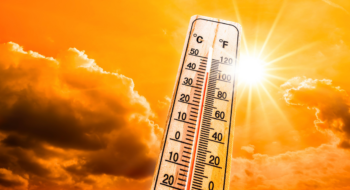True or False: The average college freshman gains 15 pounds in his or her first year at school.
Although the concept of the “freshman 15” has been repeated in news stories and across the Internet for years, there is little evidence to support the assertion that most students entering college gain anywhere near 15 pounds their first year.
To the contrary, only a fraction – about 10 percent – of first-year college students gain 15 pounds or more, according to a 2011 study published in Social Science Quarterly. The study, one of several with similar results, found that the typical freshman gains between 2.5 and 3.4 pounds.
And some of that added weight may be unremarkable.
“As young adults develop, some weight gain is normal,” says Jamie Kandora, clinical nutrition manager for Tidelands Health. “But while an increase of a couple pounds during late adolescence is expected for many people, rapid weight gain or regular weight gain year after year needs to be monitored and addressed. Young adults should still participate in regular exercise and focus on healthy eating habits before and during their years in college.”
Health challenges at school
Some of the many health pitfalls first-year students face include increased levels of stress, disrupted sleep, poor eating habits and decreased activity levels.
Kandora suggests young adults try to stick to a regular schedule as much as possible, while also practicing stress relief activities such as exercise and deep breathing. When it comes to good nutrition, students should limit consumption of pre-packaged foods and make sure to fit in some fresh fruits and vegetables, whole grains and lean proteins.
“Although it can be difficult, people should really try to avoid packaged items and go for more natural foods,” Kandora says. “Whole foods have a greater health benefit with more vitamins, minerals and fiber, and less of the sugar and salt commonly found in processed foods.”
Late-night snacking can also be a challenge for students in college and contribute to weight gain. But Kandora says it’s more about what you’re reaching for than the time of day.
“Late-night snacking can be OK if you are not going over your calorie limits for the day and you are choosing well-rounded, mindful things,” she says. “If need to eat something because you really are hungry, reaching for a healthy snack like an apple and peanut butter and keeping those portions small is fine.”
Alcohol
Alcohol use is one factor that can contribute to rapid weight gain among college students.
According to one 2008 study, on nights of heavy drinking students made less healthy food choices and consumed larger portion sizes.
If alcohol is consumed, it should be in moderation. People who choose to consume alcohol should consider those calories as part of their daily intake.
Mindful food choices
While college is an opportunity for personal growth, it doesn’t have to also be a time for an unhealthy amount of weight gain.
“Students should remain mindful of their food choices,” Kandora says. “Trying to stick to more natural foods and preparing snacks like a hard-boiled egg, carrot sticks, cheese sticks, an apple, nuts and a banana, or a Greek yogurt with berries can go a long way in helping to stave off unhealthy weight gain.”





